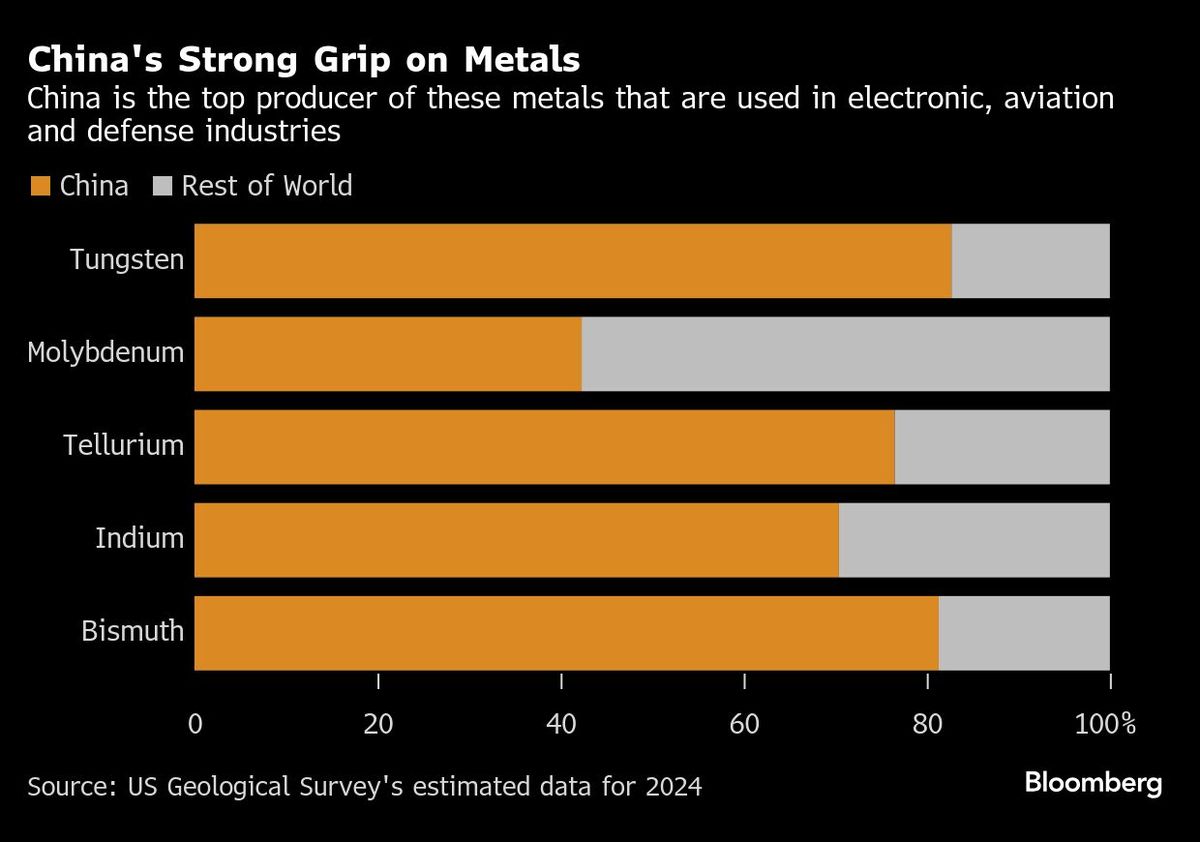
China produces around 80% of the world’s tungsten and bismuth, and is also the number one supplier of the other metals.
(Feb 4): China put export controls on tungsten and other niche metals used in the electronics, aviation and defence industries as it retaliated in a targeted way to US tariffs.
In addition to tungsten — which is known for its remarkable density and high melting point and is most commonly used in armour-piercing missiles — Beijing imposed export curbs on molybdenum, tellurium, bismuth and indium on Tuesday. The announcement came immediately after President Trump fired the opening salvo in the trade war, hitting all US imports from China with a blanket 10% tariff.
China produces around 80% of the world’s tungsten and bismuth, and is also the number one supplier of the other metals. Its response suggests it will take a more calibrated approach in dealing with Washington, targeting materials with military applications and seeking to maximise its impact by focusing on commodities where it has the most leverage.
“The recent announcement is surprising,” said Luke Adriaans, research analyst at consultancy Project Blue. “The industries most likely to be affected include the defence sector, where tungsten is a crucial material for munitions manufacturing.”
Tungsten is also used in the automotive industry and for engine parts and balancing weights in the aerospace sector, according to Project Blue. Tungsten wire is used to slice silicon ingots into wafers for semiconductors and solar panels, and demand for it has risen over the last few years, Adriaans said.
There are alternative sources of tungsten being developed outside of China — including in Australia, Spain and South Korea — but it could take time to add meaningful volumes to the global market.
Concerns about Beijing’s grip on critical minerals have grown sharply since it placed gallium and germanium under stricter government oversight in 2023 and added antimony to its list of restrictions last year. That resulted in higher prices for the three niche but vital metal markets.
Uploaded by Arion Yeow
- Sapura Resources sues ex-MD Datuk Shahriman and others for over RM3 mil in damages
- Anwar receives courtesy visit from tech giant Oracle, discusses AI and digital innovation
- Singapore man accused of Nvidia chip fraud wields global connections
- Stocks extend drop, dollar falls on tariff woes
- Trump’s manufacturing dreams clash with business owners’ reality

